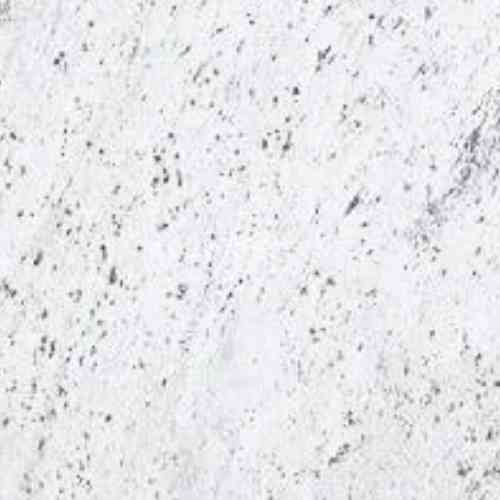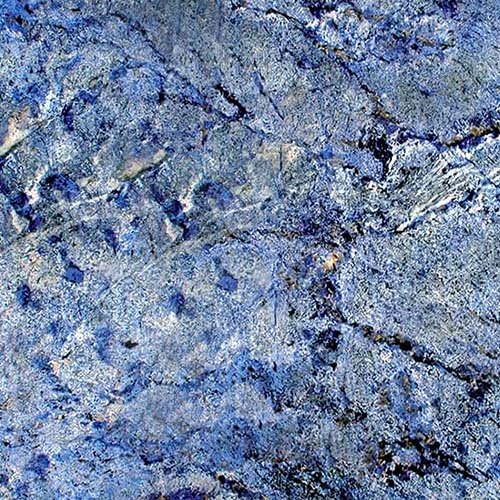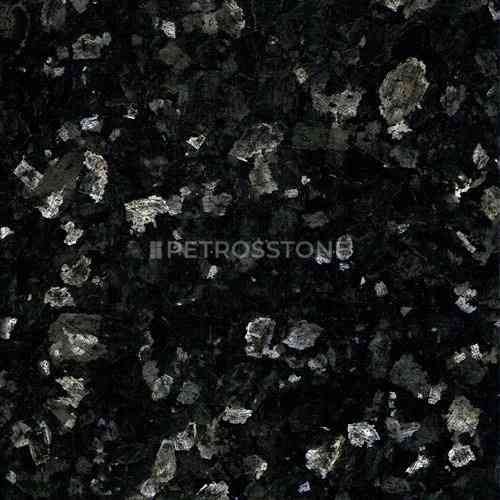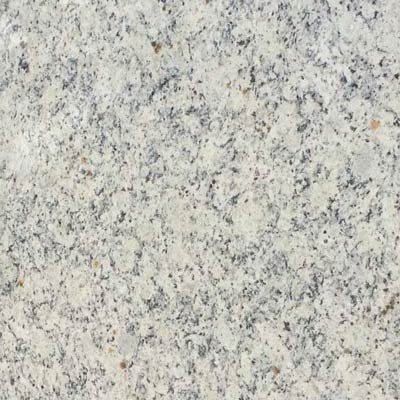
In this article learn how hard granite is. Not only that how hard marble and quartz is and what impact this has and why you need know verything about hardness of these materials so you can make a better informed decision.
Granite is not the hardest stone, but it ranks impressively high on the hardness scale.
With a Mohs hardness rating of 6-7, granite is harder than stones like marble (3-4), limestone (3-4), and slate (2.5-4), but softer than diamond (10) and some engineered stones like quartz (7-8).
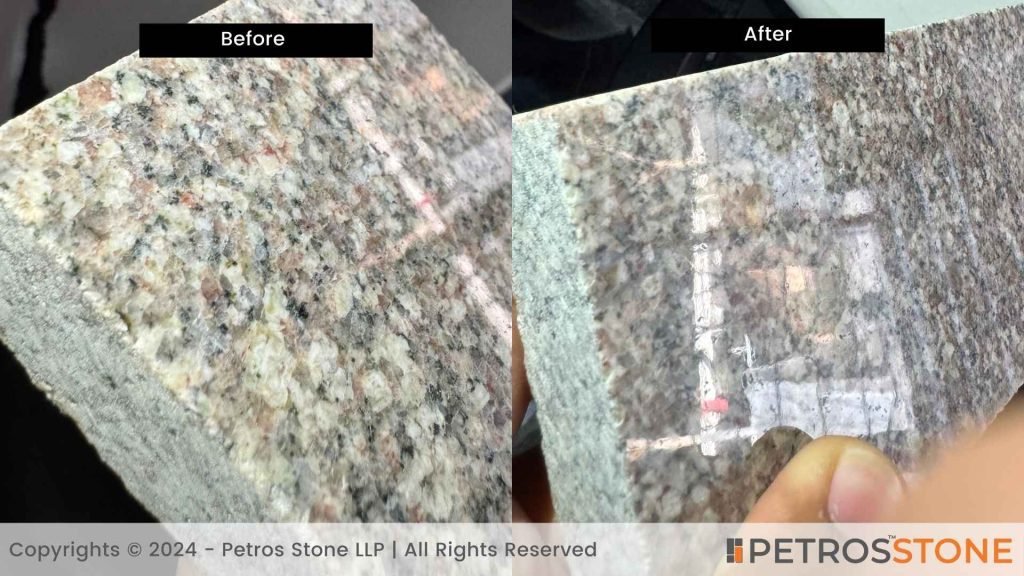
Black granite is considered the hardest variety, typically rating around 6.5 on the Mohs scale. Its remarkable hardness comes from its composition of quartz and feldspar minerals, making it resistant to scratches and wear, which is why it’s a popular choice for countertops, flooring, and construction applications.
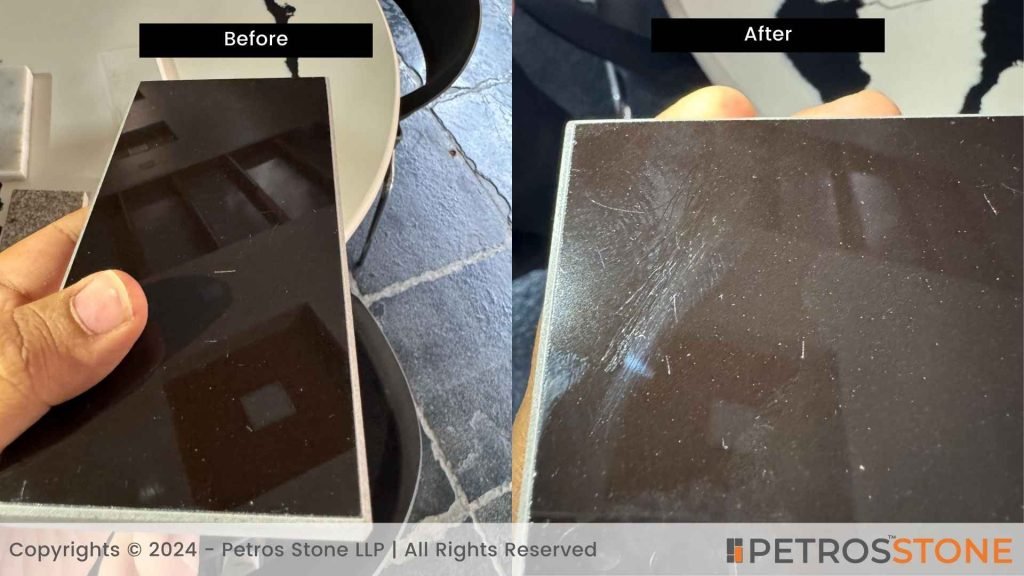
Granite is one of the most popular natural stones that is used in construction and design, especially for countertops, flooring, and other architectural elements.
This article delves into the hardness of granite, how it compares to other materials, and the implications of its hardness for various applications.
- Will a Steel Knife Scratch Granite?
- What is the Mohs Scale? Is it Accurate?
- Marble, Porcelain, Granite & Quartz – Hardness Comparison
- How can I check if the granite is hard?
- Hardness Comparison: Soapstone, Granite, Marble & More
- Which is Scratch Resistant? Granite or Marble?
- What is Scratch Resistant, Granite or Quartz?
- Advantages of Granite's Hardness
- Applications of Granite Based on Hardness
- Limitations of Granite Despite Hardness
- Formation Process of Granite
- Why Should you Choose Granite?
- Stones in the Increasing Order of Hardness
- Is Granite the Hardest Stone?
- Conclusion
- FAQs
Will a Steel Knife Scratch Granite?
Granite is indeed harder than steel, which means a steel knife should not scratch a granite surface.
Granite Vs Steel Knife
- On the Mohs hardness scale, granite ranges from 6 to 8, while stainless steel measures around 5.5.
- The key to granite’s incredible strength lies in its mineral composition, particularly quartz and feldspar, which actually surpass steel in hardness.
Why Granite is harder?
- Granite’s exceptional durability comes from its unique formation process.
- Created deep within the Earth’s crust under millions of years of intense heat and pressure, granite develops an incredibly robust structure.
- Its mineral grains grow tightly together, creating a material that is nearly as durable as steel beams.
What is the Mohs Scale? Is it Accurate?
On the Mohs scale, minerals are ranked according to their degree of hardness, with 1 denoting the softest and 10 denoting the hardest. Granite ranks between 6 and 7 on this scale, which indicates that it is quite hard compared to other materials.
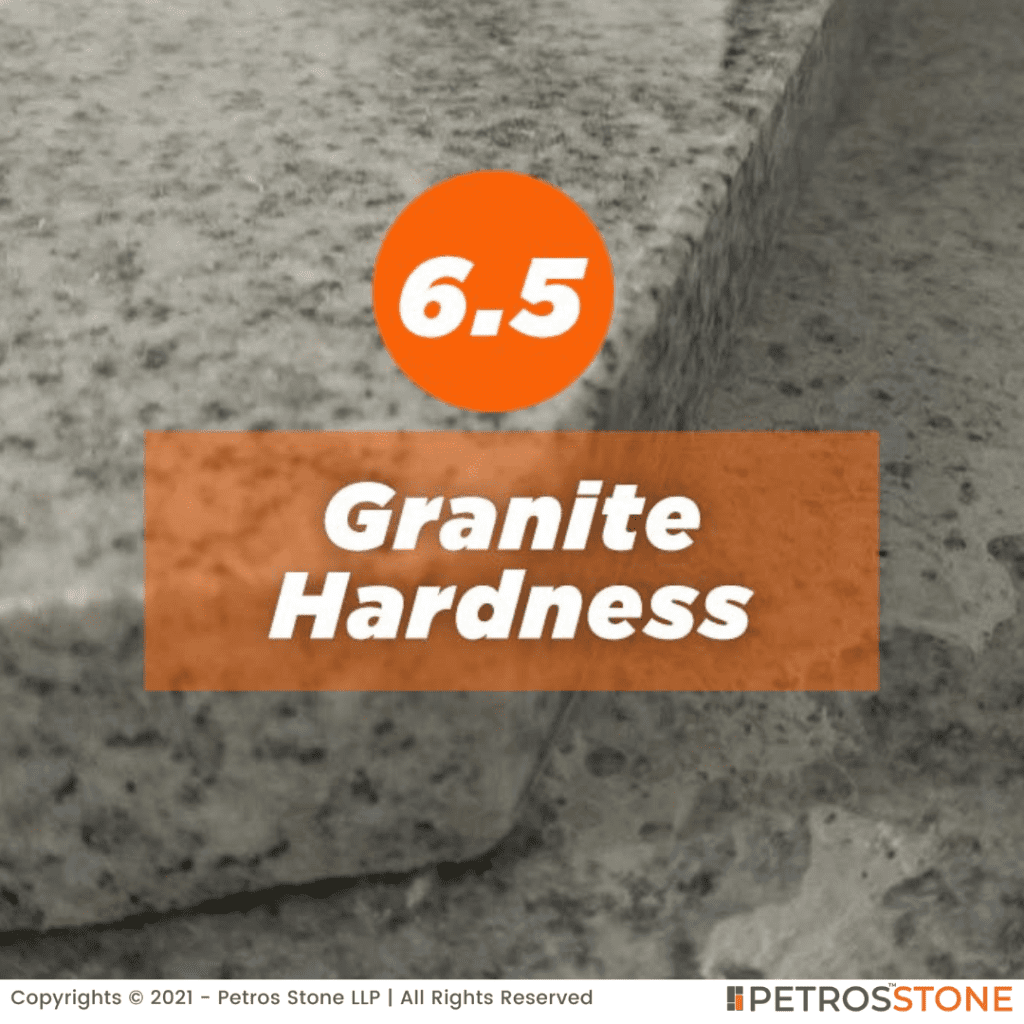
A standard method which is used to measure the hardness of minerals, such as granite is known as the Mohs scale of mineral hardness. This scale was created by Friedrich Mohs in the year 1812.
The Mohs scale categorises minerals according to their ability to resist scratches from other harsh substances.
Marble, Porcelain, Granite & Quartz – Hardness Comparison
Granite is an igneous rock which is formed from the slow crystallization of magma beneath the Earth’s surface. It is primarily composed of quartz, feldspar, and mica, which contribute to its strength and unique appearance. This unique mineral composition alludes to granite its unique characteristic, speckled look and a wide range of colours from deep blacks and greys to vibrant pinks and greens.
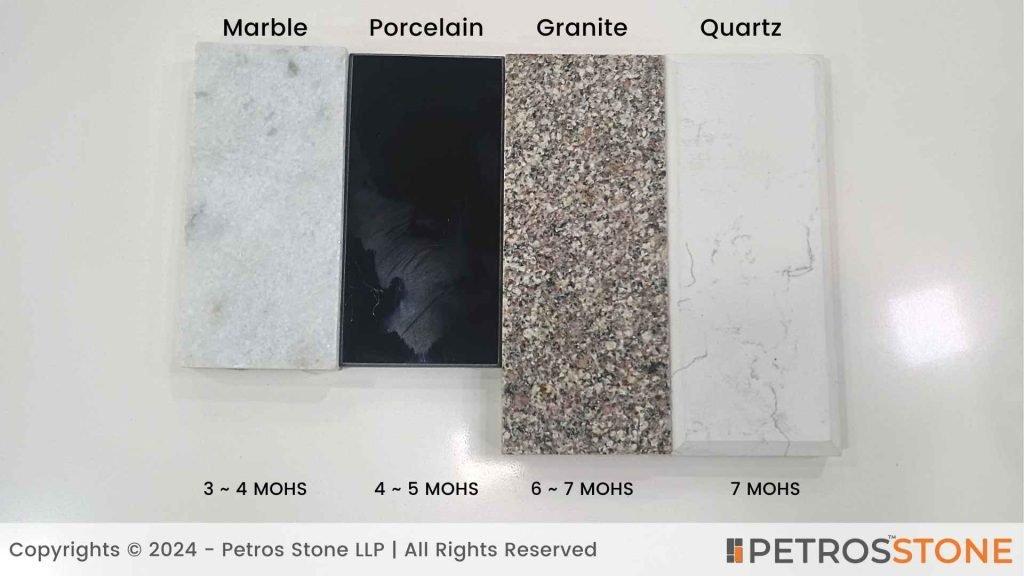
| Hardness | Stones |
|---|---|
| 2 – 2.5 | Soapstone, Gypsum, |
| 3 – 4 | Marble, Calcite |
| 5 – 5.5 | Steel, Porcelain Obsidian |
| 6 – 6.5 | Granite, Amazonite, Labradorite |
| 6.5 – 7 | Granite, Onyx, Peridot, Jadeite |
| 7 – 7.5 | Quartz, Amethyst |
| 7.5 – 8 | Aquamarine, Emerald, Topaz |
| 8 – 8.5 | Spinel, Alexandrite |
| 9 | Ruby, Sapphire |
| 10 | Diamond |
Which Granite is the hardest?
Granite’s impressive hardness comes from its composition of quartz and feldspar minerals. This means a granite countertop can resist scratches from everyday items like knife blades.
Black granite is considered the hardest variety, rating around 6.5 on the Mohs scale.
How can I check if the granite is hard?
If you like a granite, and you dont know how hard it is, the easiest and best the best way to check its hardness is to scratch using a hardness kit, and look at the depth of the scratches made.
While testing with the hardness kit, light surface marks might mean that they have the same hardness and deep scratches means that the granite you like is considerable softer.
Hardness Comparison: Soapstone, Granite, Marble & More
Marble
Ranks around 3 to 5 on the Mohs scale. Marble is softer than granite and more prone to scratches and etching.
Quartz
Ranks around 7 on the Mohs scale. While slightly harder than granite, quartz surfaces are engineered and may not have the same durability in high-heat situations.
Soapstone
Ranks around 1 to 2. This material is much softer than granite and can be scratched easily.
Which is Scratch Resistant? Granite or Marble?
Granite is generally harder than marble. Although both are natural stones, they possess distinct properties that influence their hardness.

On the Mohs scale of mineral hardness, granite typically ranks between 6 and 7, which makes it relatively resistant to scratches and damage. In contrast, marble is softer, usually falling within the 3 to 4 range on the same scale. This indicates that granite is more durable and better equipped to withstand wear and tear than marble.
This difference in hardness means that granite is often the preferred choice for high-traffic areas, such as kitchen countertops and flooring, where it can endure heavy use without showing signs of wear. While marble is still a durable and aesthetically pleasing option, it may be more susceptible to scratching and etching in such environments.
What is Scratch Resistant, Granite or Quartz?
Both granite and quartz are known for their durability, making them popular options for countertops and various surfaces.
Granite typically has a mineral hardness rating of 6 to 7 on the Mohs scale, indicating that it is quite hard and resistant to scratching.
Quartz, on the other hand, is an engineered stone made by blending crushed quartz crystals with resin. It generally ranks around 7 on the Mohs scale, placing it in a similar hardness range as granite.
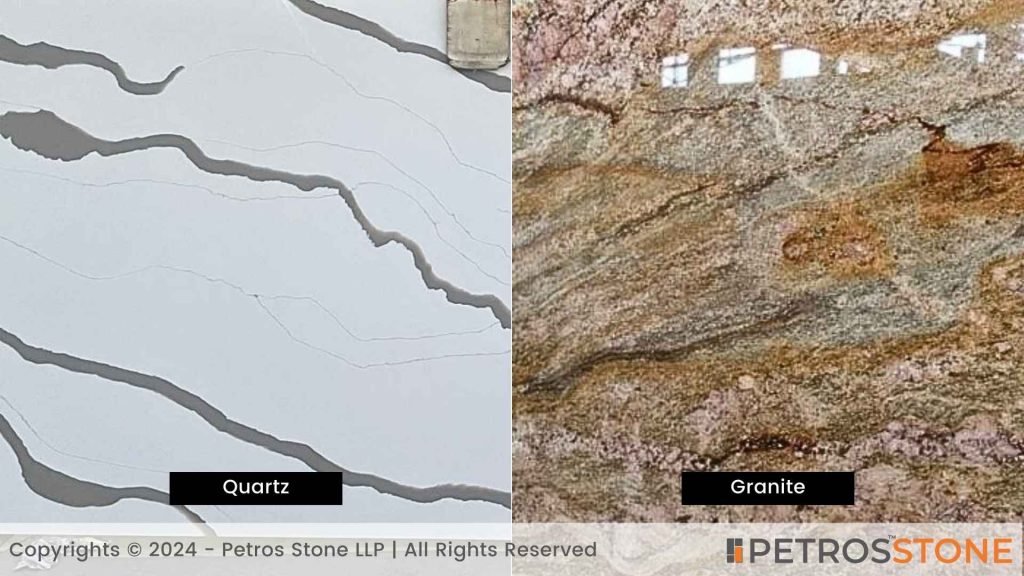
Advantages of Granite’s Hardness
Granite’s hardness has several implications for its use in construction and design:
Durability
- Granite’s hardness makes it highly resistant to scratches, chips, and general wear and tear.
- This durability ensures that granite countertops can withstand the rigours of daily use in kitchens without showing significant signs of wear.
Heat Resistance
- Granite can tolerate high temperatures without damage.
- Homeowners can place hot pots directly on granite surfaces without fear of scorching or melting, making it an ideal choice for cooking environments.
Maintenance
While granite is durable, it does require some maintenance to preserve its appearance:
- Sealing: Granite is porous; thus, it should be sealed regularly to prevent staining from spills.
- Cleaning: A mild soap solution is generally sufficient for cleaning granite surfaces without causing scratches or damage.
Applications of Granite Based on Hardness
Given its hardness, granite is suitable for a variety of applications:
Countertops
- Granite countertops are popular for their beauty and durability.
- They can handle heavy use in kitchens while maintaining their aesthetic appeal.
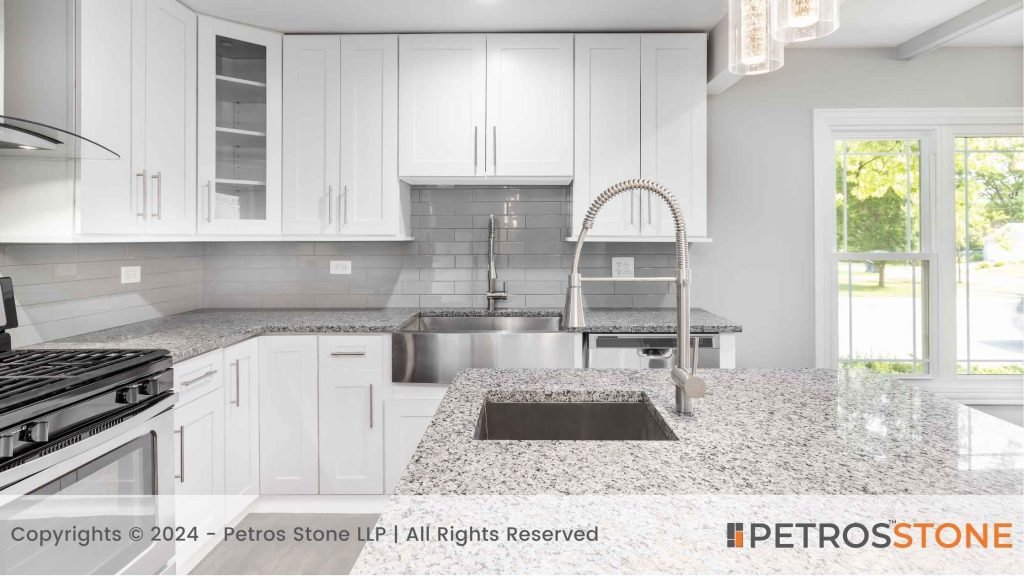
Flooring
- Granite flooring offers a luxurious look with excellent durability.
- Its resistance to wear makes it suitable for high-traffic areas in homes and commercial spaces.
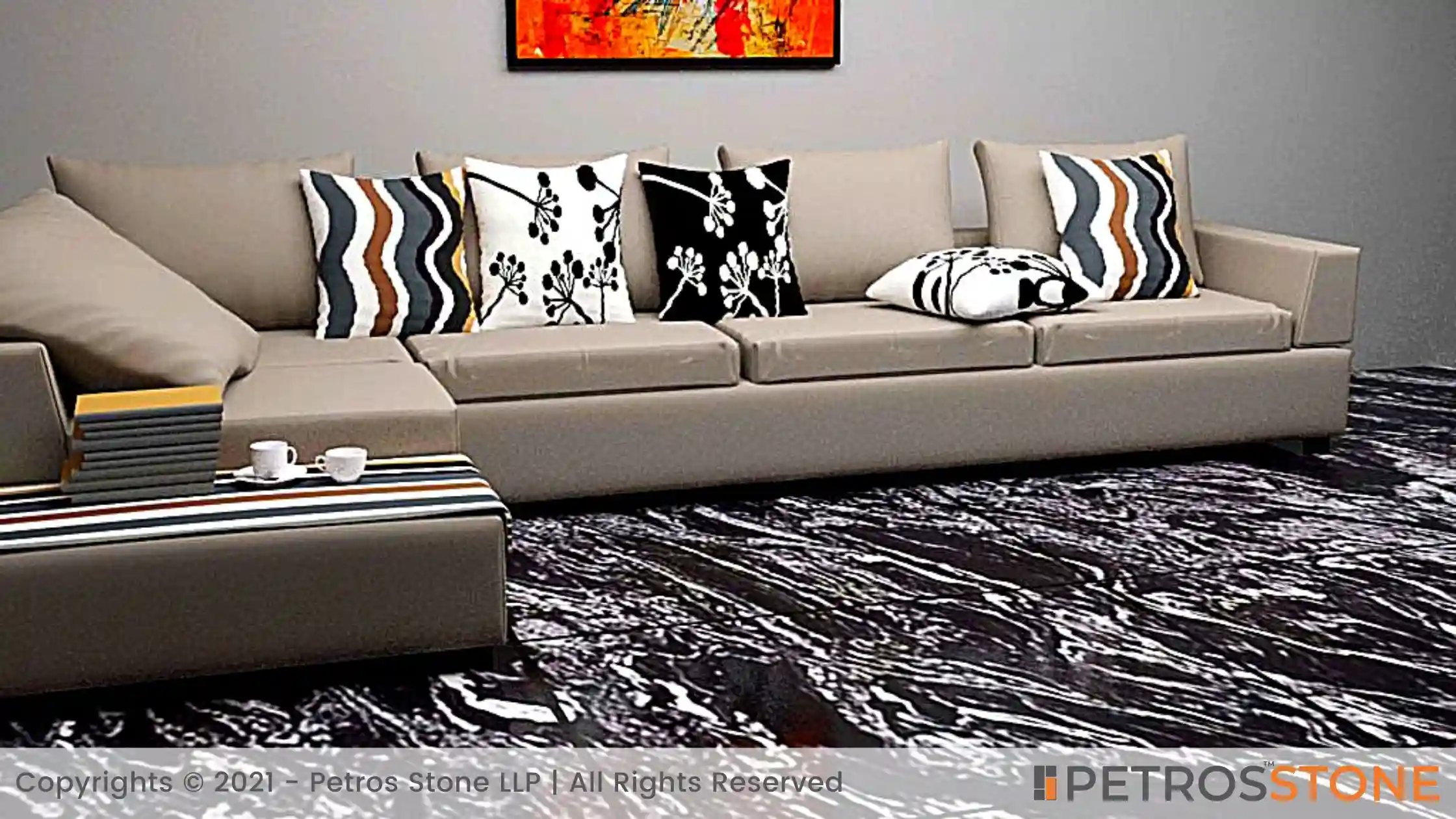
Outdoor Use
- Due to its weather resistance, granite is often used in outdoor applications such as patios and walkways.
- Its ability to withstand temperature fluctuations makes it suitable for various climates.
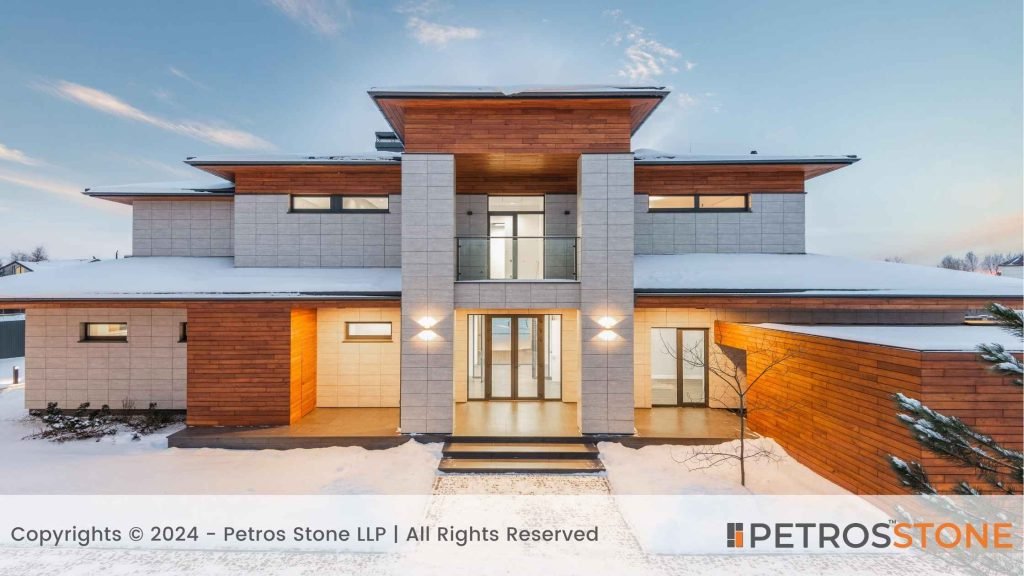
Limitations of Granite Despite Hardness
While granite’s hardness offers many advantages, there are some limitations:
Granite is Heavy: How Much Does Granite Weigh?
- Granite slabs are heavy, which can complicate installation.
- Proper support structures must be in place to accommodate the weight of granite countertops or flooring.
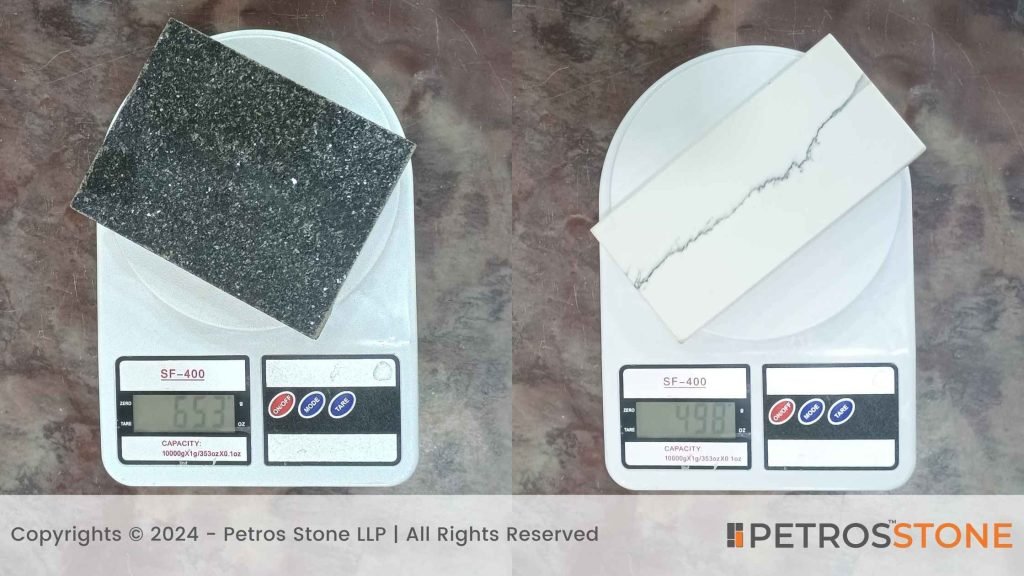
Cost
- Granite costs are usually higher than other materials due to extraction, transportation, and fabrication processes.
- However, many consider it a worthwhile investment due to its longevity.
Chipping
Although hard, granite can chip if subjected to extreme impact or pressure. Care should be taken when handling heavy objects on granite surfaces.
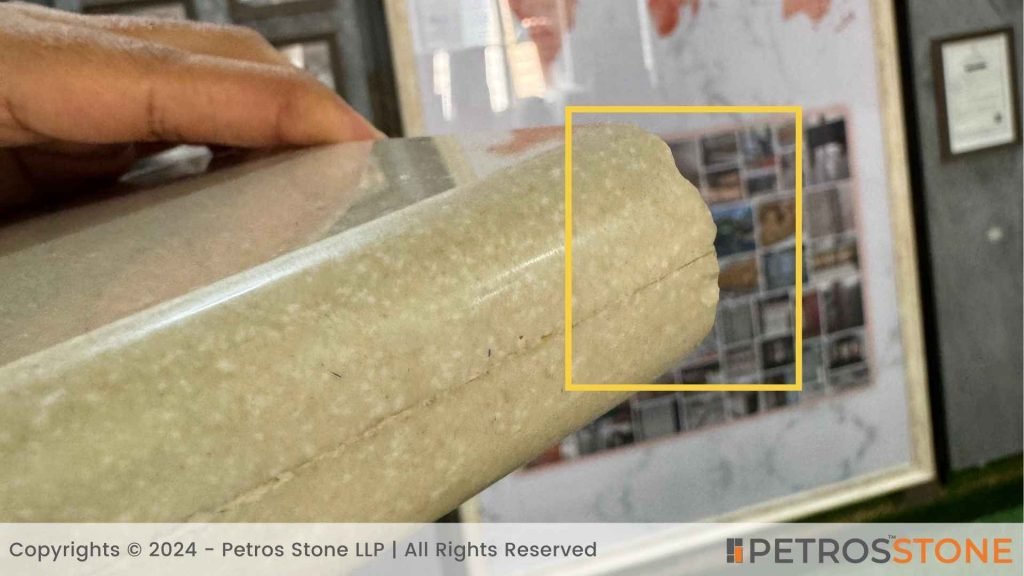
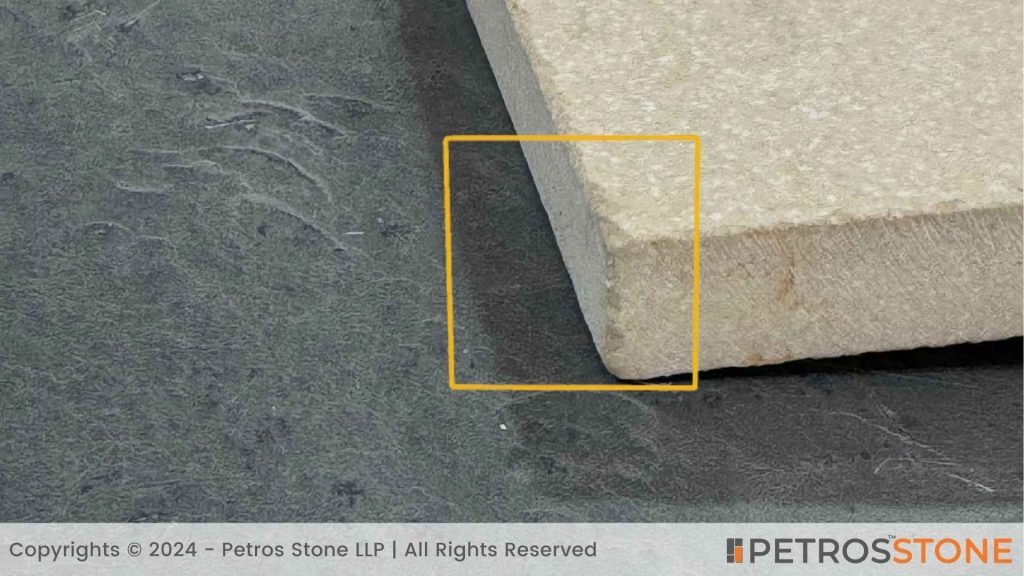
Formation Process of Granite
The formation of granite involves the following steps:
- Magma Cooling: Granite forms when magma cools slowly underground, allowing large crystals to develop.
- Mineral Composition: The specific minerals present in granite determine its colour and pattern.
- Natural Weathering: Over time, geological processes such as erosion expose granite at the surface.
Why Should you Choose Granite?
These following factors makes granite a perfect choice for your countertops and patios:
Durability
- Granite is known for being one of the hardest natural stones, which provides exceptional resistance to heat and scratches.
- When properly sealed, its non-porous nature helps prevent staining and inhibits bacterial growth, ensuring a hygienic and low-maintenance surface.
Aesthetic Appeal
- Every granite slab boasts unique patterns and colours that can elevate the look of any space.
- Its luxurious appearance enhances aesthetics and adds value, making it a favoured option for high-end projects.
- You can also check the wide variety of granite colours available here.
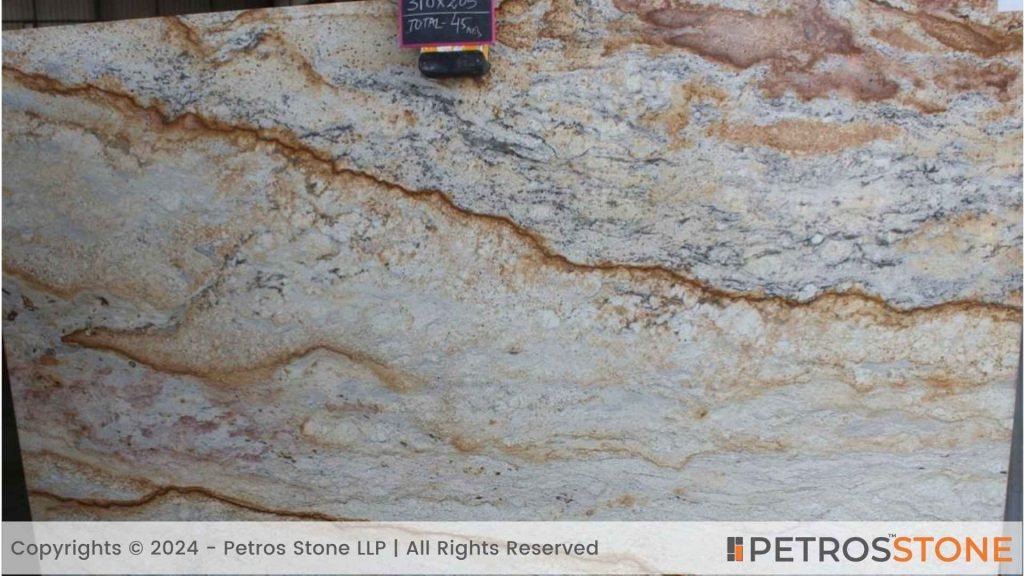
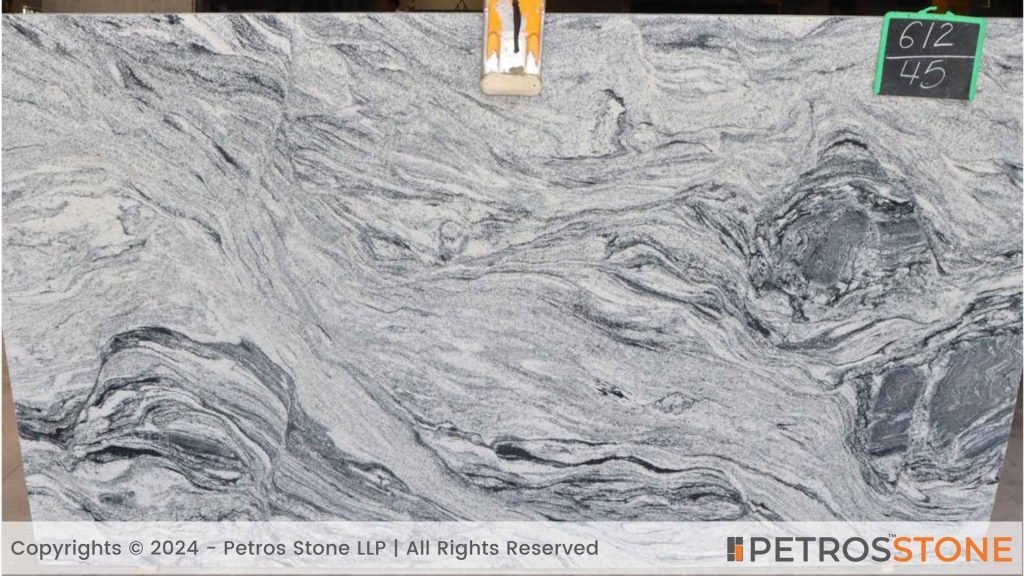
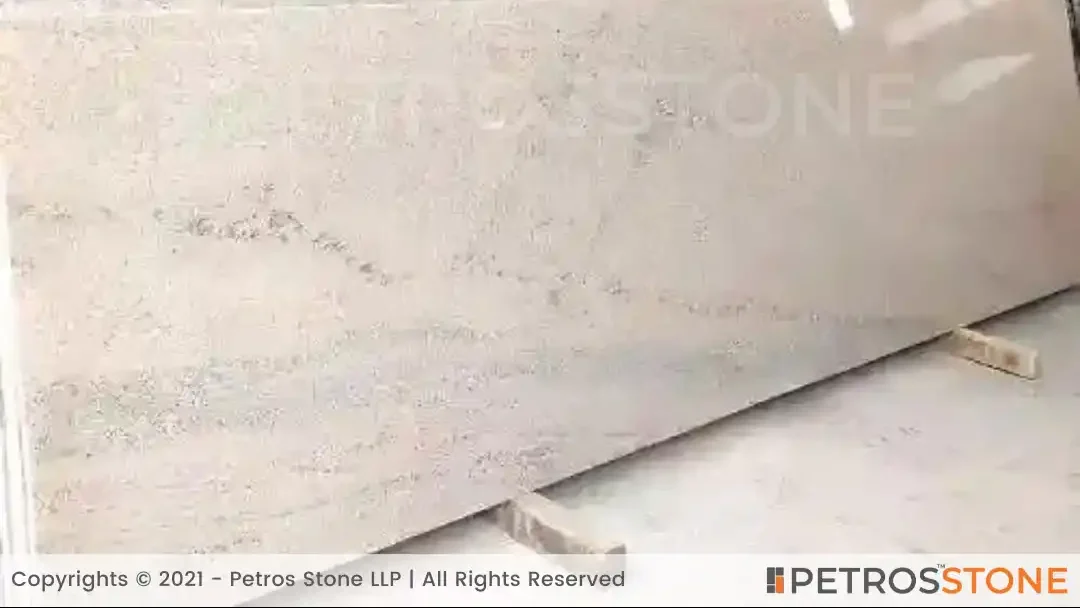
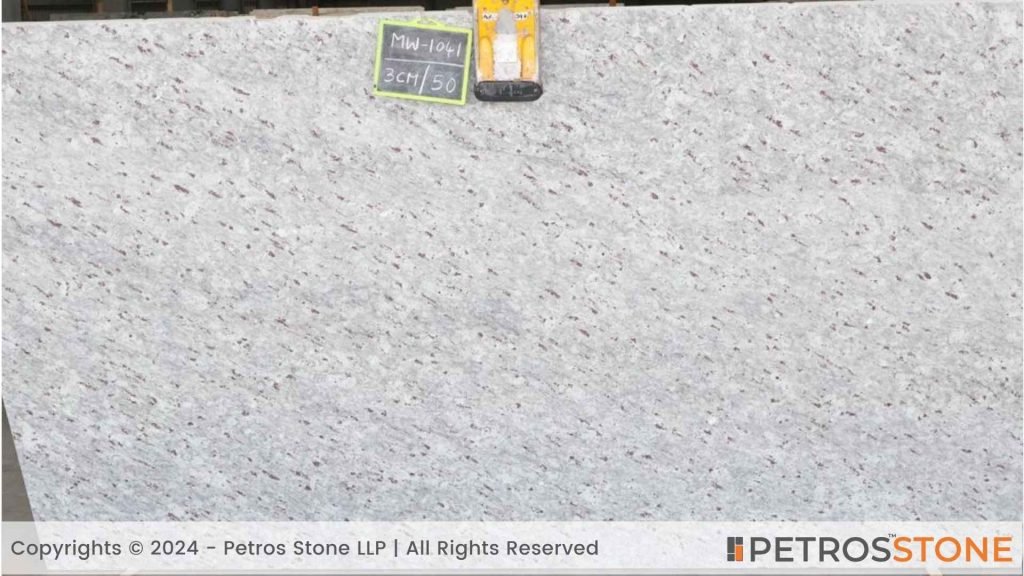

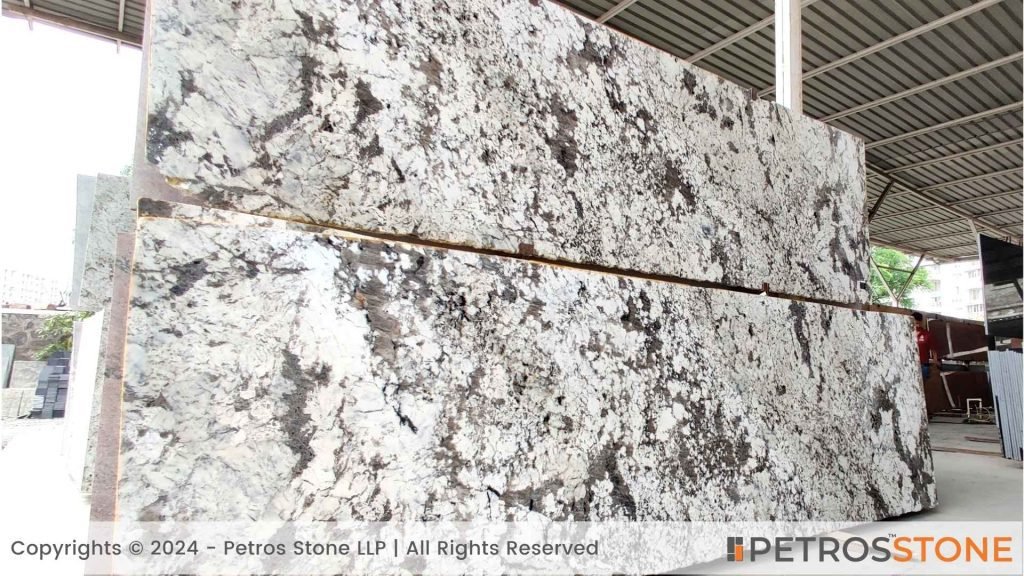
Versatility in Various Environments
Granite’s durability makes it suitable for a wide range of settings, from bustling kitchens to outdoor patios. It can endure extreme temperatures and heavy use, making it an excellent choice for both residential and commercial spaces. Ultimately, granite merges beauty with practicality, establishing itself as a timeless option in construction and design.
Stones in the Increasing Order of Hardness
Here’s a table of stones in increasing order of hardness on the Mohs scale:
| Hardness | Stones |
|---|---|
| 2 – 2.5 | Soapstone, Gypsum, |
| 3 – 4 | Marble, Calcite |
| 5 – 5.5 | Steel, Porcelain Obsidian |
| 6 – 6.5 | Granite, Amazonite, Labradorite |
| 6.5 – 7 | Granite, Onyx, Peridot, Jadeite |
| 7 – 7.5 | Quartz, Amethyst |
| 7.5 – 8 | Aquamarine, Emerald, Topaz |
| 8 – 8.5 | Spinel, Alexandrite |
| 9 | Ruby, Sapphire |
| 10 | Diamond |
Is Granite the Hardest Stone?
Granite is not the hardest stone, but it is remarkably durable. On the Mohs hardness scale, granite ranks between 6-7, which places it among the hard natural stones, but not at the top.
Comparative Durability
While it is not the absolute hardest, granite outperforms many other stones:
- Harder than marble (3-4 on Mohs scale)
- Similar hardness to quartzite (7 on Mohs scale)
- Significantly more durable than limestone or slate.
Granite is a perfect choice for those who are seeking a tough, scratch-resistant stone alongside beauty and remarkable strength.
Conclusion
Granite’s hardness plays a crucial role in its popularity as a building material.
With a rank between 6 and 7 on the Mohs scale, it signifies that it is a durable choice for countertops, flooring, and outdoor applications. Its resistance to heat and scratches makes it ideal for high-use areas like kitchens while requiring regular maintenance through sealing.
FAQs
- What is the hardness of granite?
Granite ranks between 6 to 7 on the Mohs hardness scale, which indicates its high resistance to scratches compared to softer minerals. - How does granite compare to other stones?
Granite is harder than marble but softer than quartzite on the Mohs scale, making it a durable surface choice. - What factors affect granite’s hardness?
Granite’s hardness is influenced by its mineral composition, primarily quartz and feldspar, which contribute to its toughness and density. - Can granite scratch other materials?
Yes, granite can scratch softer materials due to its hardness rating. - Is all granite equally hard?
While most granite varieties fall between 6 and 7 on the Mohs scale, specific slabs may vary slightly in hardness based on their mineral composition.
Feel free to get in touch for a free consultation, quote, and get a detailed understanding from our experts here at Petros®. Visit https://petrosstone.com/ or call +91-8446360361 and WhatsApp

Hi!
I’m Ritupriya, and I bring together years of experience in architecture with a deep passion for writing. At Petros® Stone, I share my insights on natural stone, helping readers explore its role in design, durability, and timeless beauty.
Brown Granite
White Galaxy Granite
Blue Bahia Granite
Silver Cloud Granite
Black Pearl Granite
Dallas White Granite



